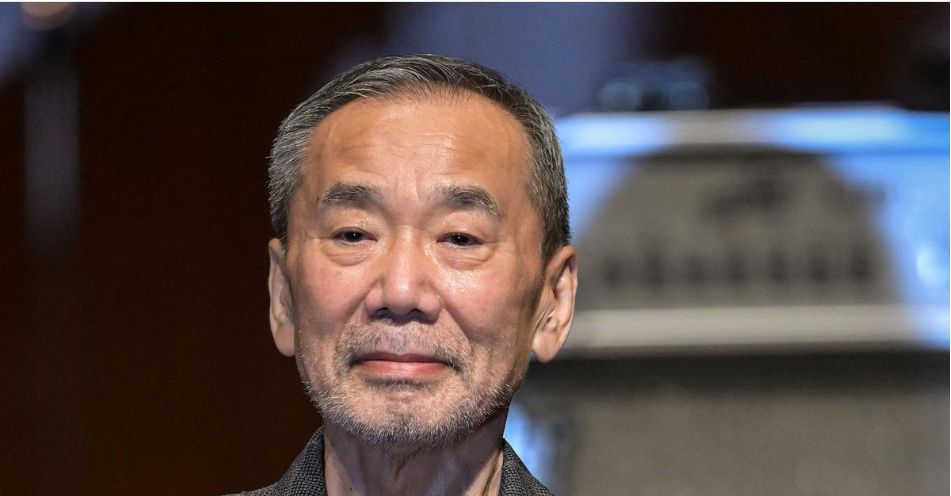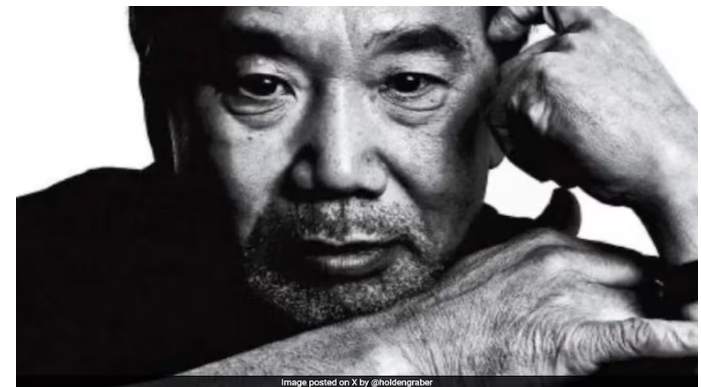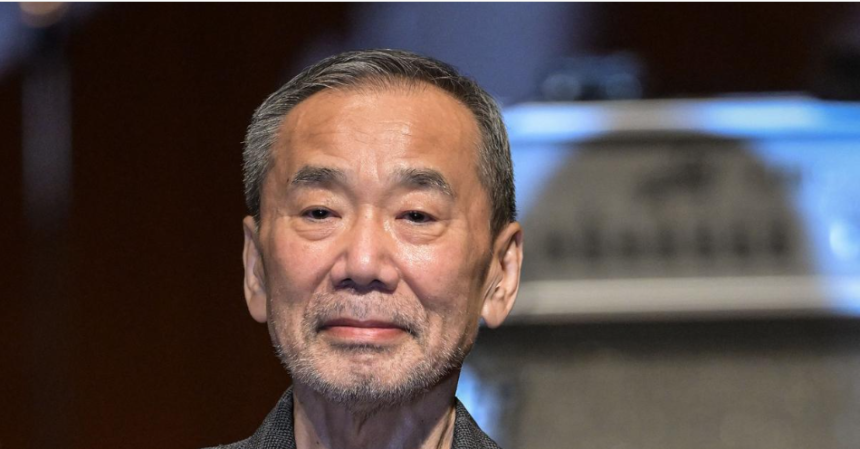Introduction
Haruki Murakami Japanese literary icon beloved worldwide for his surreal narratives and introspective characters, recently took a candid detour from his typical enigmatic persona. Addressing students and faculty at Waseda University, his alma mater, Murakami shared a series of amusing and humbling anecdotes about his academic life. “I was a terrible student,” he confessed, underlining a surprising, self-deprecating streak for someone widely regarded as one of the finest writers of modern literature.
As a novelist who has penned acclaimed works like Norwegian Wood, Kafka on the Shore, and 1Q84, Murakami rarely talks about his personal struggles and idiosyncrasies. In his speech, he took the opportunity to connect humor and humility, weaving a compelling narrative about the realities of artistic success, recognition, and the value of honorary degrees.
Waseda University: The Seed of a Literary Career
A University of Dreams (and Hurdles)
Murakami attended Waseda University, one of Japan’s most prestigious institutions, where he studied drama in the School of Humanities and Social Sciences during the late 1960s. Known for its intellectual rigor and vibrant cultural scene, Waseda became a backdrop to many formative experiences in Murakami’s life.
Yet, the author admitted that academics did not come naturally to him. “I hardly attended lectures, and when I did, I spent most of my time daydreaming or working on personal projects. I can’t remember anything about writing essays, but I do remember trying to avoid deadlines,” he quipped.  For the more information click on this link
For the more information click on this link
Books Before Degrees
Though Murakami is now the recipient of global honors and accolades, including honorary doctorates, he underscored their limited utility in a characteristically humorous way. “It’s not like they come with pension money,” he joked, adding, “And just because you have honorary doctorates doesn’t mean your books sell.”
This revelation hinted at Murakami’s career-long philosophy that accolades, while rewarding, are secondary to the pure pursuit of creativity and hard work.
“A Terrible Student” Yet a Great Storyteller
The Early Struggles
Haruki Murakami life as a student reflected an individualistic, anti-establishment spirit emblematic of 1960s Japan. The student movements of the time, marked by protests against American military bases and rising economic inequality, created a politically charged atmosphere. “Everyone seemed to have big ideas, but I wasn’t cut out for any of them,” Murakami reflected.
He acknowledged that he felt out of place in traditional academic settings, which often emphasized rote learning over free thought. “My attendance record would make any advisor weep. But in hindsight, Haruki Murakami skipping classes may have taught me more than attending them ever could.”
Early Influences
During his Waseda years, Haruki Murakami developed an affinity for jazz music and Western literature—passions that would deeply influence his writing. From running a jazz bar in Tokyo to threading musical references into novels, the seeds of his creative identity were planted during this “unproductive” time as a student.
Honorary Degrees and the Illusions of Success
Deconstructing the Prestige of Academia
Murakami’s playful dismissal of honorary doctorates touched upon larger questions about recognition and the definition of success. “They’re lovely plaques to hang on your wall,” he remarked, Haruki Murakami “but they don’t hold any weight when it comes to living your life—or selling books.”
This perspective provides insight into Murakami’s broader ethos. For him, true achievement lies in enduring connections made with readers through storytelling, not external recognition.
Global Recognition
Murakami, often speculated as a contender for the Nobel Prize, is no stranger to high-profile awards. Yet, his speech emphasized the human tendency to overvalue superficial markers of success. By highlighting the humor of being celebrated as a “bad student turned literary genius,” he brought attention to the authenticity and personal growth that true success often requires.
Impact on Aspiring Writers
“Don’t Be Afraid to Be Imperfect”
Murakami’s candid confession offers a refreshing message to aspiring creatives, particularly those weighed down by the pressure to excel academically or pursue a linear career path. His story reaffirms the idea that talent and perseverance can outshine formal qualifications.
“It’s okay to fail a test or two if it means writing the next chapter of your novel,” Haruki Murakami encouraged.
Valuing Life’s Detours
By highlighting his unconventional journey—working at a jazz bar, feeling disconnected from university life, and finding inspiration in a baseball game at age 29—Murakami emphasized the importance of valuing life’s unexpected twists. “You don’t always find success in the classroom or the office; sometimes, Haruki Murakami you stumble upon it late at night, running a bar, or during an aimless walk.”
Humor, Humility, and Connection
Speaking to the Human Condition
Murakami’s comments aren’t just charming anecdotes about student life—they offer profound insights into the human condition. By laughing at his own shortcomings, Murakami demonstrated a remarkable ability to turn vulnerability into strength. His humility contrasts with the stoic aura often associated with literary legends.
Relatable Wisdom
His words resonated with the young audience because they mirrored a relatable, modern struggle. Many students today battle existential uncertainty about future careers, academic obligations, Haruki Murakami and creative ambitions. Murakami’s message—a balance of self-effacement and motivational candor—reassured them that success is not always tied to rigid expectations.
The Role of Institutions in Individual Success
A Symbiotic Relationship
Murakami acknowledged his debt to Waseda University, which had conferred upon him an honorary doctorate years after he gained international fame. “They gave me the tools to think critically, Haruki Murakami even if I didn’t fully grasp their purpose at the time,” he said.
Still, his experience underscores a vital message: while institutions offer resources and opportunities, individual effort and creativity are the true determinants of success.  For the more information click on this link
For the more information click on this link
Reforming Academic Expectations
Murakami’s address could serve as a call to action for universities to embrace more flexible, student-centric approaches to education. His life illustrates that genius often blooms beyond standardized frameworks.
Haruki Murakami: The “Terrible Student” Who Inspires Millions
From skipping lectures to becoming one of the most celebrated authors of his time, Haruki Murakami’s journey is an unconventional success story. It challenges conventional wisdom, Haruki Murakami emphasizing the unpredictable, often nonlinear paths toward accomplishment.
The Irony of Self-Reflection
As Murakami himself noted, “Being a terrible student doesn’t mean you won’t make an impact—it just means you’ll find a different way to leave your mark.”
Legacy Beyond Degrees
Ultimately, Murakami’s speech reveals that success transcends titles, accolades, and academic performance. It lies in authenticity, self-awareness, and the courage to carve your path—however unconventional it may seem.
Through his humor, humility, and honesty, Murakami reminds us that failure and imperfection are not obstacles but stepping stones to greatness. ALSO READ:-Security Russia’s Clampdown on Tajik Migrants: A Looming Economic and Crisisis 2024/






1win на телефон https://www.1win6001.ru .
1win партнерка вход http://familyclub.borda.ru/?1-6-0-00002163-000-0-0-1743051813/ .
mostbet casino mostbet casino .
1win зайти https://1win6001.ru .
1 вин войти http://1win6001.ru .
1 win официальный сайт http://www.familyclub.borda.ru/?1-6-0-00002163-000-0-0-1743051813 .
1win. 1win. .
мостбет скачать андроид https://mostbet6006.ru .
mostbet официальный сайт http://www.mostbet6006.ru .
мос бет mostbet6006.ru .
1вин вход с компьютера http://familyclub.borda.ru/?1-6-0-00002163-000-0-0-1743051813 .
1вин сайт официальный https://www.1win6001.ru .
1 win регистрация https://alfatraders.borda.ru/?1-0-0-00004932-000-0-0-1743258210/ .
1vin казино 1vin казино .
зайти в 1вин http://www.1win6049.ru .
1 win официальный сайт вход https://balashiha.myqip.ru/?1-12-0-00000437-000-0-0-1743258848/ .
1вин вход http://www.1win6049.ru .
1win онлайн alfatraders.borda.ru/?1-0-0-00004932-000-0-0-1743258210 .
1win. pro 1win. pro .
ваучер 1win ваучер 1win .
1 win официальный сайт balashiha.myqip.ru/?1-12-0-00000437-000-0-0-1743258848 .
1win pro https://balashiha.myqip.ru/?1-12-0-00000437-000-0-0-1743258848 .
1wi https://1win6049.ru/ .
официальный сайт 1win https://www.alfatraders.borda.ru/?1-0-0-00004932-000-0-0-1743258210 .
1win официальный https://1win6050.ru/ .
1win obovsem.myqip.ru/?1-9-0-00000059-000-0-0-1743051936 .
1vin 1vin .
мостбет официальный сайт мостбет официальный сайт .
скачать 1win официальный сайт http://obovsem.myqip.ru/?1-9-0-00000059-000-0-0-1743051936 .
1вин приложение http://1win6050.ru/ .
1win официальный сайт войти 1win официальный сайт войти .
мостбет скачать андроид мостбет скачать андроид .
mostbet промокод http://www.svstrazh.forum24.ru/?1-18-0-00000136-000-0-0-1743260517 .
1 win.pro https://obovsem.myqip.ru/?1-9-0-00000059-000-0-0-1743051936 .
1win официальный http://1win6051.ru .
1wi http://1win6050.ru/ .
1вин вход https://1win6052.ru .
1win сайт http://www.1win6051.ru .
wan win wan win .
1вин войти http://1win6051.ru .
1win вход http://1win6052.ru/ .
ван вин http://1win6052.ru .
most bet http://mostbet6029.ru/ .
1win онлайн 1win онлайн .
1 win официальный http://1win6053.ru/ .
1 win регистрация 1 win регистрация .
1вин сайт https://www.1win6053.ru .
мостбет официальный сайт http://mostbet6029.ru/ .
скачат мостбет https://www.mostbet6029.ru .
1win официальный сайт 1win6053.ru .
1 win moldova https://1win5011.ru .
1win 1win .
1win молдова https://www.1win5011.ru .
1win https://1win5011.ru .
one win https://1win6009.ru .
мостбет казино войти мостбет казино войти .
мрстбет http://mostbet6012.ru .
1win.online 1win.online .
1win ракета 1win ракета .
мостбет войти https://mostbet6012.ru/ .
1win com https://www.1win6009.ru .
1вин. 1вин. .
mostbet casino https://mostbet6012.ru .
1вин вход с компьютера http://1win6046.ru/ .
1win на телефон 1win на телефон .
Купить диплом университета по доступной цене можно, обращаясь к надежной специализированной компании. Заказать документ института можно у нас в столице. diplom-club.com/kupit-diplom-visshego-obrazovaniya-s-zaneseniem-v-reestr-32
хранение вещей складские услуги хранение вещей складские услуги .
пластиковые окна пластиковые окна .
заказать окна в москве заказать окна в москве .
betwinner вход betwinner вход .
банкротство физ лиц банкротство физ лиц .
ипотека под материнский капитал crediteurasia.ru .
Рекомендую услуги проверенных хакеров. Обращался, сделали все быстро и качественно – Где найти хакеров .
отзывы https://niksolovov.ru/services/alto-ai 2025
окна пвх рехау https://www.okna177.ru .
Рекомендую проверенного хакера – Удалить негативные отзывы Почта специалиста: Unitstels@yandex.com
накрутить подписчиков в телеграмм канал Накрутить подписчиков в Телеграмм канал.
Thanks for the article. Here’s more on the topic https://voenoboz.ru/
проверика контрагента proverit-kontragenta.ru .
Thanks for the article. Here’s more on the topic mirka-master.ru .
Thanks for the article. Here’s more on the topic https://remonttermexov.ru/
Thanks for the article https://telegra.ph/Luchshie-podpoverhnostnye-voblery-dlya-lovli-shchuki-TOP-10-modelej-01-13 .
Thanks for the article https://www.hostboard.com/forums/members/grom95.html .
купить грануляторы пнд производство купить грануляторы пнд производство .
Website https://imgtube.ru/
Website – https://lostfiilmtv.ru/
Website https://jennifer-love.ru/
Website – https://lostfiilmtv.ru/
Website https://portalbook.ru/arenda-avtomobilya-dlya-povsednevnyh-zadach-i-poezdok-po-gorodudlya-povsednevnyh-zadach-i-poezdok-po-gorodu/
En este recurso de la Clínica de Urología Moderna se explican los tratamientos para diferentes problemas urinarios.
La Clínica de Urología Moderna concentra en un solo portal información sobre tecnología, seguridad y resultados. Clínica de Urología Moderna
La página de la Clínica de Urología Moderna resume los principales motivos de consulta y cómo se abordan.
En esta plataforma, la Clínica de Urología Moderna agrupa contenidos sobre prevención y tratamiento de problemas urológicos.